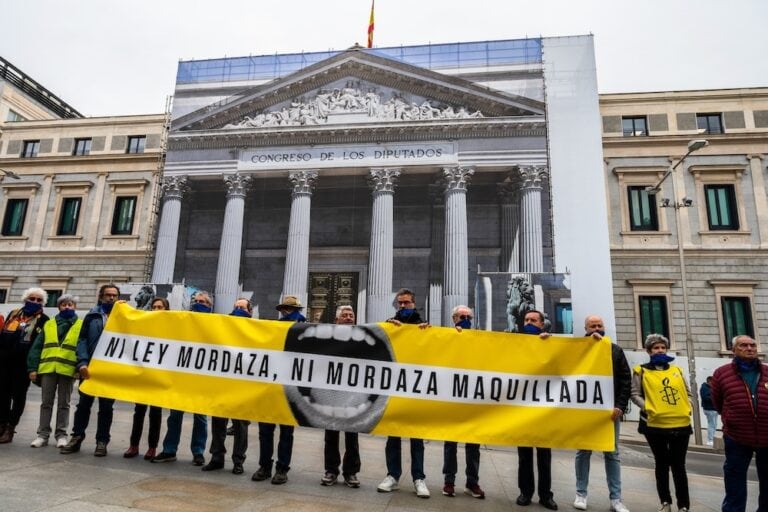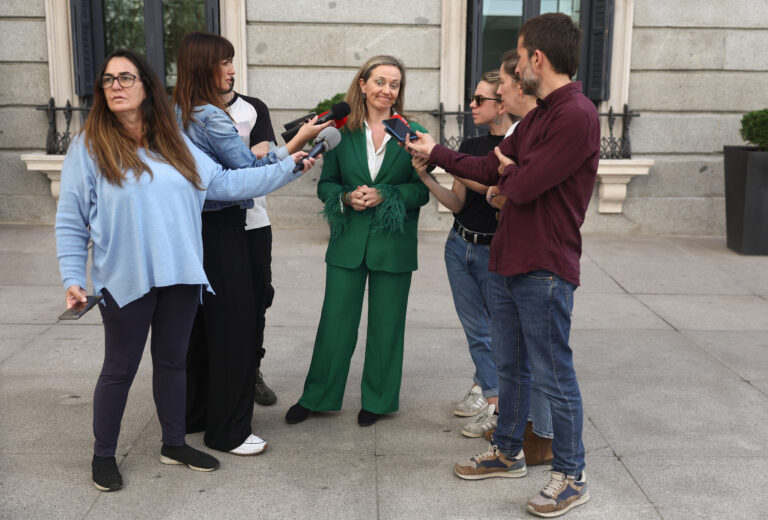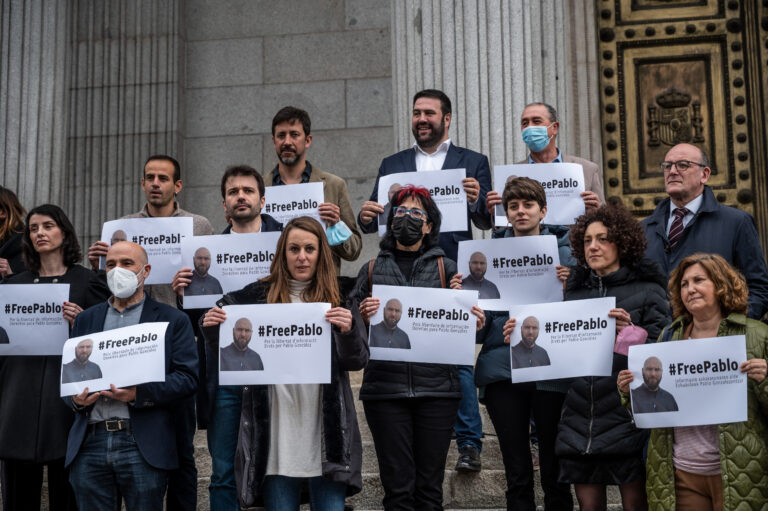(IFJ/IFEX) – The following is a 9 June 2008 IFJ press release: EFJ Condemns Bombing of Basque Newspaper Office The International Federation of Journalists (IFJ) and its regional organisation, the European Federation of Journalists (EFJ), today condemned the bombing on Sunday of the offices of Basque newspaper El Correo in an attack that police have […]
(IFJ/IFEX) – The following is a 9 June 2008 IFJ press release:
EFJ Condemns Bombing of Basque Newspaper Office
The International Federation of Journalists (IFJ) and its regional organisation, the European Federation of Journalists (EFJ), today condemned the bombing on Sunday of the offices of Basque newspaper El Correo in an attack that police have attributed to Basque separatist group ETA.
The IFJ and EFJ fear that this latest attack could be a sign that ETA has resumed its campaign of violence and intimidation against media.
“Journalists should not be targeted with violence in an attempt to silence them,” said EFJ Chair Arne König. “The Spanish government must ensure that our colleagues in the Basque region are safe and not the tragic victims of violent political strife. It is a testament to our colleagues that despite the threats against them they continue to do their work.”
According to reports, a bomb exploded behind El Correo’s printing press in the town of Zamudio at 3 am local time. Fifty staff were in the building but no one was hurt. Police have said the terrorist group ETA is believed to be behind the attack.
ETA was responsible for a wave of attacks on journalists that appeared to reach a peak in 2000 and 2001. Before yesterday’s bombing, ETA sent its last parcel bombs to journalists in January 2002. All of those were defused by security before they could explode.
On May 24th, 2001, two unidentified gunmen shot Santiago Oleaga Elejabarrieta, the financial director of the daily El Diario Vasco, to death in a public parking lot. A week earlier a parcel bomb exploded at the home of journalist Gorka Landaburu in Zarautz, who was maimed in the attack. In January 2001 an ETA unit in Barcelona tried to kill Luis Del Olmo, a leading radio journalist; the same thing happened to Aurora Intxausti, of daily newspaper El País, and her husband, Juan Palomo, of Antena 3 Televisión. In March of that year the offices of El Correo in Bilbao were hit by a number of Molotov cocktails. In 2000 José Luis Lopez de la Calle of El Mundo was killed.
Currently there are still dozens of journalists in the Basque region who are under police protection or who have been obliged to hire bodyguards.
The IFJ and EFJ have supported the work of its Spanish affiliates – the Federación de Asociaciones de la Prensa Española (FAPE), the Federación de Comunicación, Papel y Artes Gráficos ELA IGEKO and the Federación de Comunicación y Transporte de CCOO – to challenge the terrorist campaign of violence against media staff.
The EFJ is again calling on the Spanish and regional autonomous Basque authorities and European political leaders to redouble their efforts to isolate the terrorists and to ensure that journalists will not fall victim to their violent tactics.
Both the IFJ and EFJ supported a protest by media workers against the ETA attack held today in Bilbao.
The EFJ represents over 250,000 journalists in over 30 countries.
For further information on ETA’s previous violations of freedom of expression, see: http://ifex.org/en/content/view/full/74391
http://ifex.org/en/content/view/full/62077


